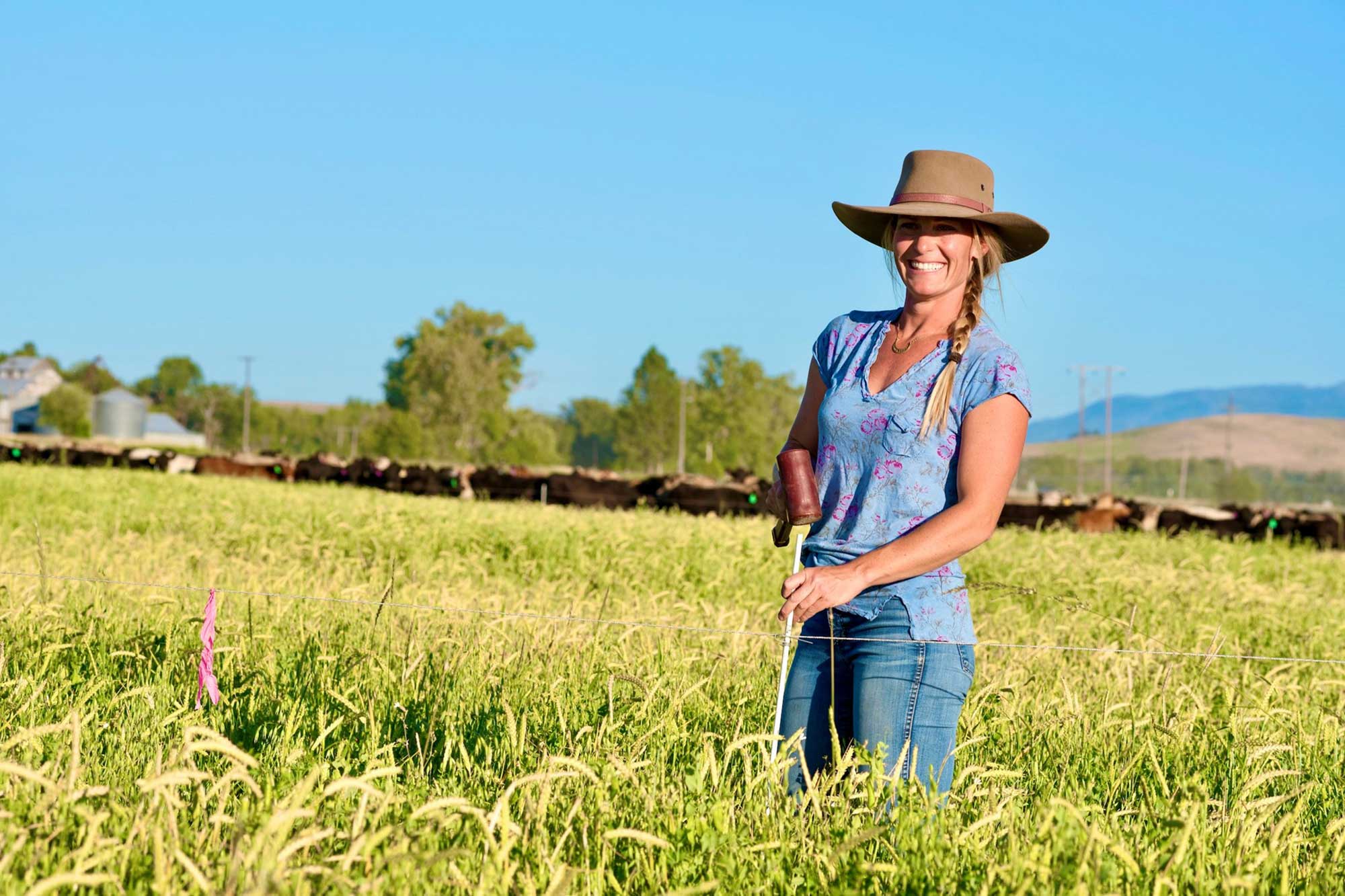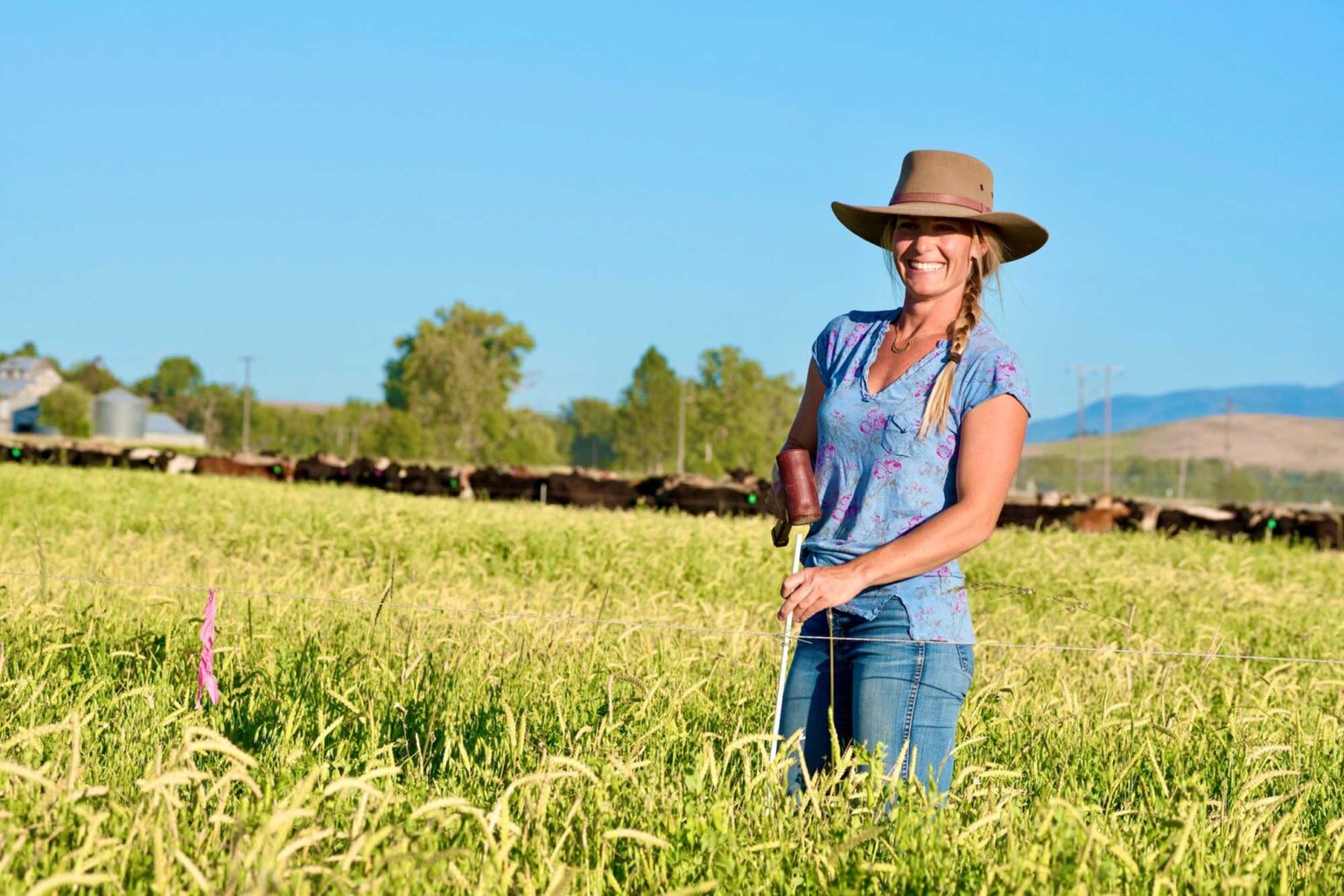With the pressures of climate change, land loss, and increasing costs of inputs, supporting grassroots farmers and ranchers is a no-brainer. These are the folks who face the daily realities of managing ecosystems and ensuring food security, yet they are often the ones who struggle the most with access to resources necessary to sustain and grow their operations.
Marginalized farmers, including BIPOC, Veterans, LGBTQIA+, and beginning farmers, are disproportionately impacted by systemic barriers that make it difficult to maintain and deepen their relationship with the land. With encroaching development and other issues threatening farmland, it’s in all our best interests to channel funding directly into the hands of those who work the land.
That’s why American Farmland Trust (AFT) puts our weight behind the Brighter Future Fund. For more than 40 years, AFT has been working to support farmers and ranchers in accessing land, planning for the future of their farms, and integrating new and innovative farming practices that support a resilient future. Our commitment to this fund reflects our ongoing mission to ensure that all farmers and ranchers can thrive.
We believe that empowering grassroots farmers through direct support can safeguard both the land and the future of sustainable agriculture—and communities. Since 2020, the Brighter Future Fund has granted nearly 5 million to over 2,000 farmers and ranchers to help them improve farm viability, access or protect farmland, and adopt regenerative practices.
This year alone, $700,000 was distributed to 139 farmers across the country. Over 50% of those awarded funding identified as beginning farmers, with 30% under 34 years old and over 60% of grantees identified as women.
“The Brighter Future Fund has become a beacon of hope for farmers who are looking to not only overcome challenges but also innovate and thrive. This year’s success is due to the combined effort of our donors, staff, and, most importantly, the farmers and ranchers who share their dreams and dedication with us. Together, we are helping shape a more resilient and sustainable future for agriculture,” said Ashley Brucker, Senior Manager of Grantmaking, Brighter Future Fund & Farm Viability.
With the announcement of our 2024 cohort, we are excited to continue this momentum. To celebrate, we’re highlighting three recipients from this past year that exemplify the transformative impact of these grants on food security, land stewardship, and community building.
Square Mile Ranch
At Square Mile Ranch in northeastern Oregon, soil regeneration is at the heart of operations. Aimee Danch, a first-generation rancher, manages a multi-species operation that raises grass-fed cattle, hogs, and sheep, providing high-quality meats to local families. Committed to restoring soil health, Aimee believes that understanding and nurturing the land’s past and future is crucial. “Our compost piles are rich mounds of life, built from years of on-farm harvests, but we need more to bring the land back to life,” she explains.
Over the past four years, Aimee has transformed farm harvests into large, beautifully complex mounds of compost. The Brighter Future Fund grant enabled her to purchase a Bio 5 Extractor from Soil Works LLC and a pull boom sprayer for efficient application of the compost.

With this investment, she is revitalizing degraded acres into fertile, diverse pastures without relying on chemical fertilizers. “Our soil is the foundation of everything we do, and this grant has helped us feed what feeds us — bringing our land back to its full potential,” she shares.
Follow Square Mile Ranch on Instagram or visit their website: www.squaremileranch.com.
Peculiar Pig Farm
In Dorchester, South Carolina, Nikki Ross and her husband, Marvin, run Peculiar Pig Farm, a family-owned operation with deep community roots, raising heritage hogs, chickens, goats, and cows. “Born into a lineage of dedicated farmers, my connection to the land and the animals is a testament to my commitment to the farming way of life,” Nikki shares. “We raise our animals with compassion and respect, providing them with a natural lifestyle and the ability to roam and socialize.”
The Brighter Future Fund is helping Peculiar Pig Farm secure additional land, enabling them to grow crops to feed their animals and increase livestock capacity. “There are five acres of land next to ours that we’ve had our eye on for a while. This grant will help us put a down payment on it, and that will be a game-changer,” Nikki explains.
By growing their own feed, the farmers can reduce costs and enhance sustainability while providing more ethically raised, high-quality meats to the community. “This expansion is a step toward ensuring a brighter future for our farm and our family,” Nikki adds.
Follow Peculiar Pig Farm on Instagram or visit their website: www.peculiarpigfarm.com.
Hungry Work Organic Farm
Located in Stockton, New Jersey, Hungry Work Organic Farm is a small but mighty operation run by Devin Cornia, committed to providing fresh, nutritious produce to the local community. Operating on a pay-what-you-can model, the farm donates roughly half of its crops to local food pantries, addressing food insecurity head-on. However, as a part-time farmer balancing a full-time job, Devin has faced challenges in maintaining efficiency and food safety.
With the help of the Brighter Future Fund, Hungry Work Organic Farm will construct a FSMA-compliant wash and pack station and walk-in cooler. “We’ve been making do with a temporary setup, but this grant allows us to build proper infrastructure,” Devin explains. This investment will certainly reduce food waste and increase both sales and donations.
Devin’s vision is to scale up operations and eventually transform Hungry Work into a 501(c)(3) nonprofit focused on local food security. “This isn’t just about efficiency—it’s about ensuring that our community gets safe, high-quality food. The support from AFT is helping us grow, literally and figuratively,” Devin shares.
Follow Hungry Work Organic Farm on Instagram or visit their website: www.hungrywork.org.
Funding Collective Impact
Since its inception, the Brighter Future Fund has helped transform the lives of thousands of farms across the country. By focusing on communities that have historically faced barriers to accessing financial resources, the fund is leveling the playing field and nurturing the next generation of agricultural leaders.
As the Brighter Future Fund grows, AFT is dedicated to increasing the resources, training, and financial support needed to build lasting, sustainable farms. By empowering those who work the land and understand our food system, we preserve vital connections between communities and their ecosystems while fostering a more equitable and resilient agricultural future. It’s really as straightforward as that.
To learn more and donate to the Brighter Future Fund, please click here.
This article was published on behalf of American Farmland Trust.


